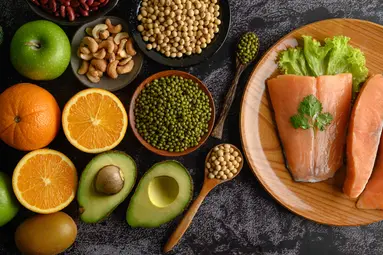Your skin and acne: All you need to know
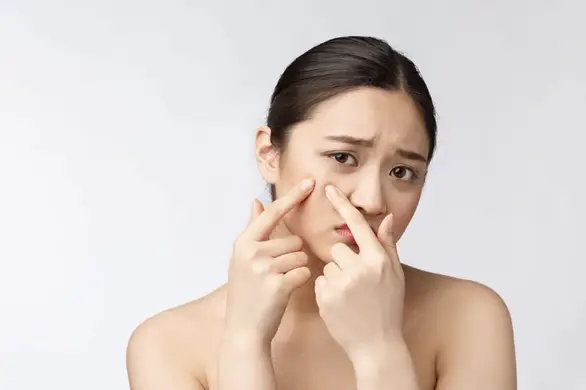
Your skin and acne: All you need to know
Posted on 18th Jul, 2022
Everything we need to know about acne:
Acne or commonly called pimples is one of the most common skin conditions. Although acne affects people of all ages, it is more common in teenagers. When the hair follicles found on the skin become clogged with oil or dead skin cells for any reason, this results in the formation of a pimple.
One important point to remember is that although acne might not be a fatal condition, severe forms of acne can result in permanent scarring, so seeking appropriate treatment is recommended for people of all ages.
Different types of acne:
Acne can appear in the form of blackheads, and whiteheads or cause inflammatory lesions like papules, pustules, and nodules, or in extreme cases, it can lead to cyst formation.

Blackheads and whiteheads:
These are the most common types of acne lesions:
1. Blackheads
They are also called open comedones. They open at the surface of the skin. The dark appearance of this type of acne is due to the oxygen in the surrounding air.
2. Whiteheads
Whiteheads are also known as closed comedones. They have the color of the flesh. They appear as raised lesions under the skin.
Inflammatory lesions:
Such lesions can result in scar formation and thus must be treated by a certified dermatologist. Inflammatory lesions include the following:
- Papules
These are caused due to infections of hair follicles or inflammation of the same. They are red-colored lesions that appear as raised bumps on the surface of the skin.
- Pustules
They are similar to papules except they are filled with pus at their tips.
- Nodules
These are solid lumps under the skin. They can be painful at times.
- Cysts
These are usually painful and contain watery or pus-filled secretions. They are large and are present beneath the skin.
Causes of acne:
Acne can be caused by multiple factors, here are some of them:
Teenage acne:
Acne in teenage can be due to an increase in levels of testosterone during puberty. Sebaceous glands are sensitive to the hormone and increased levels of testosterone cause the gland to produce more sebum than required by the skin to function properly.
Acne in families:
Acne has been found to run in families. A child is more likely to develop severe acne if both parents had acne.
Acne in women:
Changes in hormone levels result in the formation of acne in women, such hormonal fluctuations can occur at the following times:
Periods:
Many women experience flare-ups of acne during or before periods, which had been attributed to fluctuations in hormone levels.
Polycystic ovary syndrome (PCOS):
A condition characterized by the formation of multiple cysts inside the ovary that also results in weight gain and acne flare-ups.
Pregnancy:
During the initial stages of pregnancy, many women experience flare-ups of acne. This is seen in the first 3 months of pregnancy.
Possible triggers:
- Medications – steroids, lithium, etc.
- Smoking
- Some cosmetic products
- Wearing hand band or backpack (increased pressure on a certain area of skin for an extended period)
Risk factors for acne:
The following factors are associated with higher risks of developing acne:
Age:
Acne can develop at any age, however, it is most commonly seen in teenagers due to hormonal changes happening during puberty.
Periods and pregnancy:
In women, acne flare-ups are associated with periods. In the first three months of pregnancy, acne flare-ups are more common.
Genetics:
If both parents had acne, the child is more likely to develop acne.
Use of oily lotions:
Using oily lotions or greasy creams can result in acne formation.
Friction on skin:
Certain clothing pieces like headbands or tights can cause excessive pressure on the skin resulting in acne.
Food that can result in acne:
Food containing refined carbohydrates like bread, desserts, etc, dairy products, fast food, and chocolates can cause acne development.
Diagnosis:
Diagnosis of acne can be made by examining the skin of the affected area. A general practitioner will look at the skin on the face, chest, or back. Examination of the skin might show various types of spots like blackheads, whiteheads, red-colored hard nodules, etc.
Treatment:
Acne can be treated with a prescription as well as with non-prescription (over-the-counter) acne products. The treatment regimen that a dermatologist might suggest will depend upon the patient’s age, type, the severity of acne, etc.
Acne medication reduces oil production and reduces swelling by getting rid of bacterial infection. The results of these medications are not immediate, they might take months or years for acne to completely disappear.
Following are the treatment options that might be used alone or in combination:
Topical medications:
1. Retinoids and retinoid-like drugs
2. Antibiotics
3. Salicylic acid
4. Dapsone
Oral medications:
1. Antibiotics
2. Combined oral contraceptives
3. Anti-androgen agents
4. Isotretinoin
Therapies:
1. Chemical peel
2. Light therapy
3. Steroid injection
Prevention:
Prevention of acne is difficult, especially when the body is undergoing any hormonal change. However, certain preventive measures can help with reducing the severity of acne:
- Routine use of a good moisturizer.
- Washing face with mild soap and water or a good oil-free facial cleanser daily.
- While using makeup, use only non-comedogenic products.
- Remove makeup at the end of the day.
- Avoid touching the face or other sensitive areas.
- Avoid tight-fitting clothes or headbands.
Summary:
Dealing with acne can be hard and isolating. It is important to seek professional help if the acne does not heal on over-the-counter medications as they can lead to scar formation if not given adequate treatment. To prevent scar formation, consult a dermatologist sooner than later.

Health articles from our experts

Guide To Eating for Anti-Aging Benefits and Youthful Skin
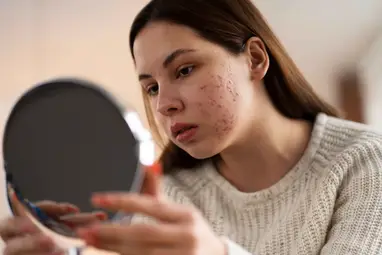
Guide To Eating for Acne-Free Skin
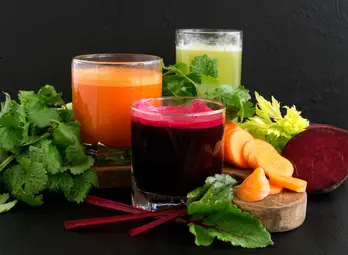
Revitalize your Dull Skin with Amla and ABC Juice
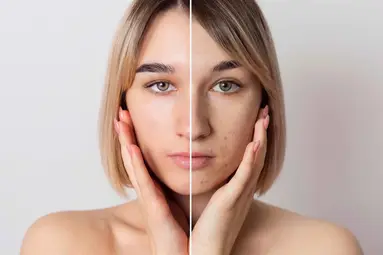
A Comprehensive Guide On How To Reduce Pigmentation
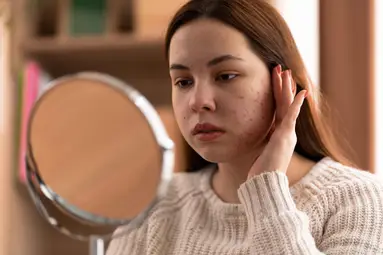
A Comprehensive Guide To Prevent Acne
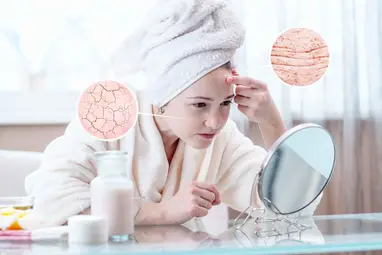
Skincare Tips for Different Seasons - Adapting Your Routine to Weather Changes

CoQ10 for Skin: Benefits & Ways to Use It

5 Best Benefits Of Ashwagandha For Skin

10 Foods Rich In Glutathione
